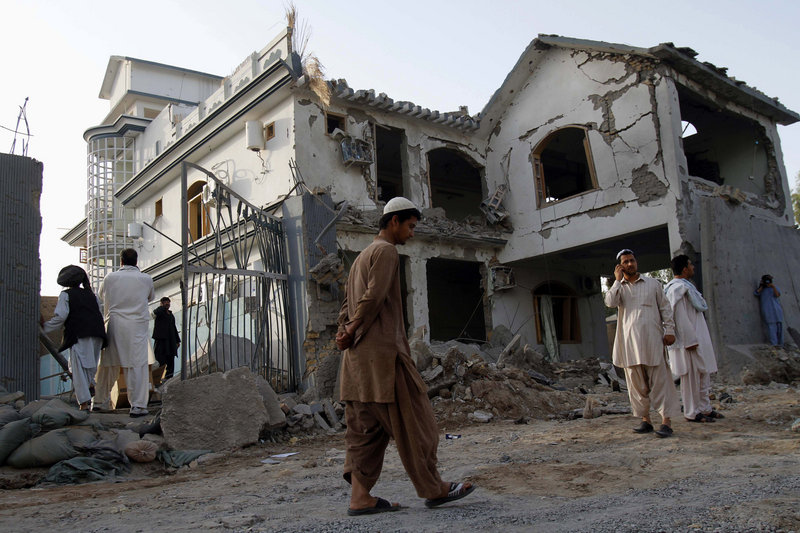KANDAHAR, Afghanistan – With a U.S.-led offensive only weeks away to clear the Taliban from this key southern city, many residents blame foreign troops and the Afghan government as much as the Taliban for pushing Kandahar toward the brink of chaos — the very thing the military hopes to reverse.
The goal of the operation by U.S., NATO and Afghan forces is to shore up a local administration that nominally controls the city and break the grip of warlords and influence peddlers, whose role is widely believed to have opened the door to the Taliban.
Kandahar is the largest city in the south and the spiritual headquarters of the Islamist movement when it ruled most of Afghanistan before the 2001 U.S.-led invasion. Weak and ineffectual government has allowed the fighters to slip back.
“I blame the Afghan government and NATO forces entirely for the insecurity because our government is weak and corrupt,” said Hajji Abdullah, who sells air conditioners in downtown Kandahar. “Everyone knows that the Taliban are against the government. They are bringing their explosives from Pakistan. Why isn’t NATO working to stop these people?”
The task of securing Kandahar will be formidable. Apart from military challenges, the mission requires redressing public grievances built up over nearly nine years of misrule and winning the trust of the half million inhabitants, who are deeply skeptical of Western promises.
“Ten percent of the people are with the Taliban, 10 percent are with the government and 80 percent of the people are angry at the Taliban, the government and the foreigners,” said Mohammed Ishaq Khan, a leader of the powerful Achakzai tribe, which dominates an area that has been the scene of bitter battles between NATO and the insurgents.
In advance of the NATO offensive, expected to kick into high gear this summer in residential districts on the edge of the city, the Taliban have stepped up their own campaign, planting more and more bombs and booby traps around Kandahar and elsewhere in the south.
“The Afghan National Army and the police cannot provide security and this government cannot provide good governance,” said Karim Khan, a tribal leader from nearby Panjwai district. “Warning of the operation only gives the Taliban a lot of time to plant bombs that cause problems for everyone.”
A Taliban commander, interviewed by The Associated Press in the heart of the city, said fighters move about freely, slipping in and out of Kandahar and hiding in private homes.
“Eight years ago we were in the mountains,” said the commander, who calls himself Mubeen. “But now we are in the cities, towns and villages because we have the support of the people. Without their support we couldn’t do it.”
Taliban attackers struck twice Thursday — once with a car bomb that wounded eight in front of a hotel in the center of the city and again with a suicide assault against a compound housing Western companies. At least three people were killed and 34 wounded in the two attacks.
“We just don’t know what to think,” said day laborer Abdul Ghani as he dug drainage ditches in the city. “We know there is no security today. We only want peace. When the Taliban were here, I could get a job. Now I can get a job, but the difference is today there is no security. We are not politicians, we are not soldiers. We just want peace.”
Azizullah, a frail 60-year-old who like many Afghans uses only one name, is convinced “the foreigners cannot bring us peace.”
“Most people are not for one side, not for the Taliban and not for the government. But one thing we have to say is that during the Taliban’s time, security was stable. There were no kidnappings, no robberies, no killings. But now we are always afraid.”
Copy the Story Link
Send questions/comments to the editors.



Success. Please wait for the page to reload. If the page does not reload within 5 seconds, please refresh the page.
Enter your email and password to access comments.
Hi, to comment on stories you must . This profile is in addition to your subscription and website login.
Already have a commenting profile? .
Invalid username/password.
Please check your email to confirm and complete your registration.
Only subscribers are eligible to post comments. Please subscribe or login first for digital access. Here’s why.
Use the form below to reset your password. When you've submitted your account email, we will send an email with a reset code.